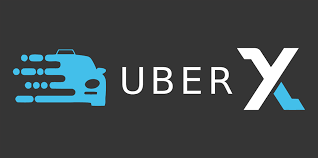Technology is a disruptor. Anyone who feels too comfortable with their status quo should watch out. And so it was that Nigerians were held to ransom by our famous, old taxi drivers with their usually stinking cabs. Until Uber and later, Bolt came calling from the US and Estonia respectively. Young boys had sat down to work out ways of democratizing ride hailing – basically that anyone could be a taxi driver and earn an extra buck at free hours, and that anyone who wanted a cab could also be linked up with those who could drive.
Before then – especially in the Lagos region – the experience with our taxi drivers was awful. Not only were they unruly – especially the ones at the airport who never agree on an organized way of picking passengers – but they were also very expensive. These men spent most of their time playing games like draught, ludo, or sport betting. They usually had their taxi stands or parks in strategic areas of Lagos State. And if you needed their services, they often were reluctant, preferring instead to play their games and have leisure. At every point in time, they complained about the ‘go-slow’ in that part of town that you wanted to go.
I have spent up to N40,000 in a single day on these guys just to get around in Lagos, when money had value. If technology had not come to disrupt them, perhaps we will have been subjected to price increases and one will easily spend N70,000 in a day. I recall landing at the Lagos Local Airport, headed for Victoria Island. N6,000. VI to Lekki, N6,000, from Lekki to Apapa, N6,000. From Apapa to Allen Avenue. N6,000. And then back to VI. N6,000. N30,000 is gone just like that. And we are talking of sometime around year 2007/8 when money still had value.
The sad thing is that their cabs stank and were rickety, and don’t even talk about air conditioning. Sometimes, fumes from the exhaust came inside the car, and they would usually have to branch and queue for petrol which they bought in bits of N500 or N1,000. And since their cars usually leaked, you end up smelling like you had been doused in petrol for your meeting.
Uber and later, Bolt came and redefined some things. They required taxis to be in some certain conditions. They had to approve of your car. And you were required to go through training as a taxi driver around courtesy, neatness, even that you had to ask the rider what kind of music they wanted to listen to. Drivers were even required to quickly clean the car after each ride and to keep quiet during the ride and keep their opinions to themselves.
But in no time, all that went out of the window in Nigeria – the special country where we make our own rules. Somehow, the type of rickety cars that we thought we had escaped forever. Then, trust Nigerians, the cars started getting dirty. I recall that even when Ghanaian Uber drivers still kept to standards, Nigerian ones had moved on. We live in a land where nobody cares. I recall ordering a ride from Eko Hotel to the airport and the guy ran out of fuel in the middle of the 3rd Mainland Bridge. The tiny car was so rickety the fuel gauge malfunctioned. The driver complained that the owner has refused to repair the car. I was lucky not to have been robbed that afternoon but the ‘area boys’ that helped pushed the car for about 2 kilometres to the nearest fuel station in Adekunle taxed me about N5,000 – which was all I had in my pocket. One needs a generous spirit to survive our times.
If I was there arguing with the driver and playing the big man, these boys who roam the long stretch of the bridge for victims could have robbed me and thrown me in the lagoon. Instead, I joined them to push the car all the way. My Mac laptop alone was worth over N1,000,000.
But situations have gone from bad to worse with these ride hailing services in Nigeria. In parts of Nigeria’s hinterland where a ride costs as low as N500, drivers would usually ask you before picking you up what you wanted to really pay them. They are not in the business for peanuts. Others will insist on going ‘offline’ meaning that you strike an independent deal with them and cancel the ride. I understand that having to pay 25% of their earnings to some foreign company is quite burdensome.
But what really bothers these drivers is that they are unable to ‘slam’ riders with heavy fares, like the old men I described above. Nigerians are very aspirational. Everybody wants to be a billionaire here and everyone is under pressure. The stability of earning a steady N150,000 monthly – which could be more if you own the car – is not for us here. Everyone needs to hammer, and so young Uber/Bolt drivers have joined their ancestors and forebears in the business of exploiting poor riders.
The ones at the airports are worse. It is now a case of taking customers for the proverbial ride and this has to be brought to the attention of the ride hailing companies by whoever is reading this who has some access to them. This is the object of this writeup. On my last trip to Lagos, I had already collected my luggage from the carousel before I called a ride. But before I could drag my luggage out of the airport building, he had cancelled on me. I called and he said he called me once and I didn’t answer. I booked another ride immediately but by the time I got to the 1st floor car park, he too had cancelled. I was livid and confused and with luggage looking like an idiot. There the Uber drivers were, in a corner on the 1st floor, gisting away – again like their ancestors. I engaged these two guys who cancelled the ride. They were right there with their friends in that corner, having a laugh.
They brought up all sorts of excuses, but I had to negotiate with one of them offline to be dropped at a hotel near the airport, for twice the amount that Bolt had estimated in my earlier booking. A friend also narrated to me how a Bolt driver in Abuja, after picking him up started to negotiate for more money. When my friend refused, Bolt guy parked by the roadside on the expressway and asked him to drop off. The violent reaction from my friend made him change his mind. What is however more frequent is when the driver shows up and asks you to cancel the ride so that you could run offline, and he pockets all the money. All of these tricks amount to extortion. We shall look at some of the security and legal issues next week and round off.

 Join Daily Trust WhatsApp Community For Quick Access To News and Happenings Around You.
Join Daily Trust WhatsApp Community For Quick Access To News and Happenings Around You.
